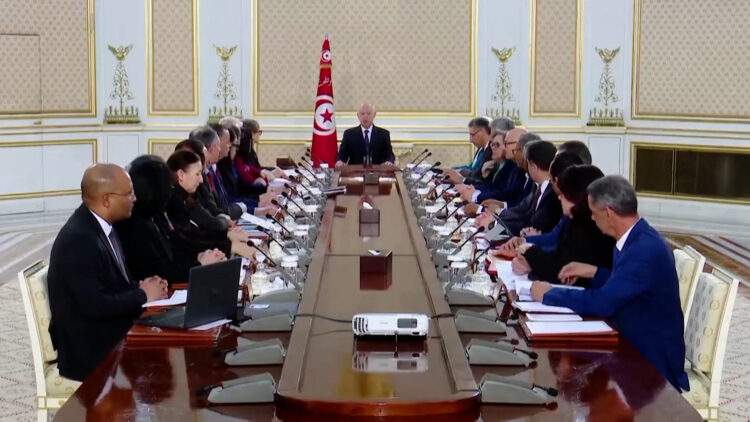In light of the political exchange between the two sides, a delegation from the European Union arrived in Tunisia to discuss the political and economic situation and the immigration file. Meanwhile, the Tunisian Foreign Ministry criticized the statements of European Union foreign policy chief Josep Borrell, who warned of the “collapse” of Tunisia, and described the political and economic conditions there as “very bad.”
The European delegation – which arrived in Tunisia in an atmosphere closer to tension in European-Tunisian relations – is headed by the Director General of Neighborhood Negotiations, Gert Jan Koopman.
The European Union mission in Tunisia announced that the discussions will focus on the political, social and economic conditions, as well as cooperation on the migration file.
In the context, European Union spokesman Luis Miguel Bueno said that the Union respects the sovereignty of Tunisia as an independent and sovereign state, noting that there is a partnership agreement between the two parties based on commitments, including the file of human rights and democracy.
On the impact of these developments, the correspondent of the French newspaper Le Monde in Brussels reported what sounded like an alarm within the European Union about what he describes as the danger of economic and social collapse in Tunisia, and the possibility of a migration crisis towards the EU countries.
The report says that the actions of Tunisian President Kais Saied created a headache within the European Union, whose movement was weak in the face of what was happening. Accordingly, it was decided to send the foreign ministers of Portugal and Belgium quickly to assess the situation in Tunisia.
The report adds that managing the Tunisian situation has become a real source of inconvenience for European diplomacy, even though Tunisia receives the largest amount of European financial aid compared to the population. He also pointed out that the recent arrests of judges, lawyers, journalists, activists and trade unionists accused of plotting against state security shocked the corridors of the European Union.
Tunisian response
Meanwhile, the Tunisian Foreign Ministry described Borrell’s statements regarding the fear of the collapse of the situation in Tunisia as “disproportionate.”
The Foreign Ministry said – in a statement – that the statements are exaggerated in light of the steadfastness of the Tunisian people throughout their history, and also with regard to the file of immigration to Europe.
The Tunisian Foreign Ministry considered that what it described as selective statements continued to ignore any responsibility for the prevailing situation in Tunisia from 2011 until July 25, 2021.
The Tunisian response and the European visit come one day after the European Union’s foreign policy official described the situation in Tunisia as “very dangerous” politically and economically and “very bad,” calling on Tunisia to sign and implement an agreement with the International Monetary Fund, fearing a possible collapse in the country. It leads – as Borrell says – to the flow of asylum seekers towards the shores of the Union, and to cause instability in the Middle East and North Africa.
Borrell also criticized the positions of Tunisian President Kais Saied on the issue of African immigrants.
Borrell’s statements caused angry reactions in Tunisia, most notably what was stated by President Saied, who affirmed that there is no room for neglecting the sovereignty of his country to anyone, and that he will not accept any external interference in his country’s affairs again, and that Tunisia is not under protection or mandate, according to him.



